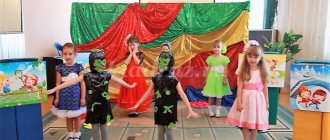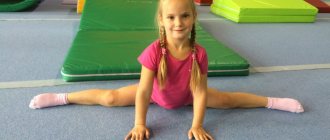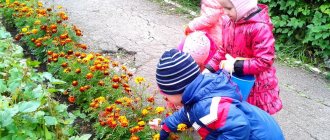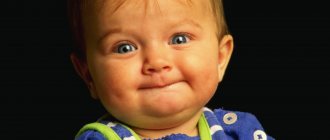MAGAZINE Preschooler.RF
Formation of a healthy lifestyle in preschool children“I’m not afraid to repeat again and again: caring for health is the most important work of a teacher.”.
V. A. Sukhomlinsky.
The formation of a healthy lifestyle should begin already in kindergarten and it must be remembered that a person’s lifestyle does not develop on its own depending on circumstances, but is formed throughout life purposefully and constantly.
“Health is a state of complete physical, mental and social well-being, and not just the absence of disease or physical defects” (E. I. Torokhova, 1999).
A healthy lifestyle is the forms and methods of daily human activity that strengthen and improve all the capabilities of the body.
In recent years, there has been enormous interest in the problem of individual human health. The health of our children is of particular concern, since physical data indicate that the health of our younger generation is far from meeting either the needs or potential capabilities of modern society.
Preschool childhood is the most favorable period for developing the right habits, which, in combination with teaching preschoolers methods of improving and maintaining health, will lead to positive results. The problem of children's health is the purposeful work of the entire team of teachers and parents
Taking care of raising a healthy child is a priority in the work of our preschool institution. A healthy and developed child has good body resistance to harmful environmental factors and resistance to fatigue, and is socially and physiologically adapted.
Therefore, the main tasks for preserving and strengthening the health of children in kindergarten are the formation of their ideas about health as one of the main values of life, the formation of a healthy lifestyle, and teach the child the right choice in any situation, only what is beneficial for health and the rejection of everything harmful. Instill in your child the right attitude towards their health and a sense of responsibility for it. These tasks must be solved by creating a holistic system to preserve the physical, mental and social well-being of the child.
The main means of achieving this task is the formation of a culture of healthy lifestyle (HLS).
In such a system, three subjects must interact: family, child, teacher. It is necessary not only for children to form the foundations of a healthy lifestyle, motives, concepts, beliefs in the need to preserve one’s health and strengthen it, it must begin with the family. Only with the joint purposeful activities of parents and teachers can positive dynamics of indicators characterizing the health of children and their orientation towards a healthy lifestyle be ensured.
Interaction with teachers is carried out through joint holding of holidays and leisure activities for children, obtaining the necessary consultations, organizing musical accompaniment and methodological recommendations. Organization of teachers' councils and selection of literature in the methodological room.
Relationships with parents are carried out through their involvement in leisure and sports and recreational activities of the kindergarten - preparation and holding of holidays, exhibitions, theatrical performances. An important condition for effective educational work in order to increase parents’ knowledge about healthy lifestyles is the organization of consultations, practical classes and visual propaganda for them. Involving parents in replenishing the development environment.
The concept of health-saving space includes:
- improved quality of the air environment on the territory and in the premises of the kindergarten (the air pool is protected by planting combined tree and shrub strips, which, in turn, do not impede the ventilation of playgrounds; regular one-way and cross-ventilation is carried out in the premises, the premises are treated with a “Quartz” )
- hardening procedures with water and air (air procedures after sleep, light-air baths during walks in the warm season, washing with cool water, salt baths for the feet, contrast hardening of the hands, rinsing the mouth after meals, barefoot walking on massage mats and wet towels, acupressure foot massage)
- for medical reasons, they conduct exercise therapy classes (therapeutic and recreational massage, aroma and herbal medicine)
- creating a developmental environment in the group (health corners are set up, book corners are decorated with coloring books and didactic games on the topic, albums with photographs of children, walks, hardening procedures, etc.).
An integral part of the health-saving space are exhibitions of literature on the topic, as well as posters made together with children, and information stands for parents.
Classes with children should be systematic and comprehensive, evoke positive emotional reactions in the child, and be carried out in a playful way. In addition, the materials of such classes should be reflected in all routine moments (educational classes, daily routine, physical education classes, educational classes, general events for the entire kindergarten). Therefore, a kindergarten should be a “healthy lifestyle school” for children, where any of their activities has a health-improving and pedagogical orientation, helps to develop their habits, and then the needs for a healthy lifestyle, the formation of skills in making independent decisions regarding maintaining and strengthening their health.
Working with children is based on the following general didactic principles:
- the principle of scientificity and reliability - the content of information offered to schoolchildren must be based on scientific facts, personal experience and sensory sensations of children.
- principle of accessibility - the information presented is adapted to the perception of preschool children.
- - the principle of clarity and entertainment - educational material should arouse interest and emotional response in children.
- the principle of conformity with nature - the forms and methods of forming ideas about healthy lifestyle in preschoolers are determined on the basis of holistic psychological and pedagogical knowledge about the child, the peculiarities of the development of his cognitive activity.
- the principle of an individually differentiated approach - the pedagogical process is focused on the individual and typological characteristics of the personal and cognitive development of each child and the group as a whole.
- the principle of an integrated and integrative approach - the formation of ideas about a healthy lifestyle is carried out through various types of activities of children in the system of educational processes, it is assumed that various types and forms of work with children, teachers and parents are used, the completion of each type of work and monitoring of results.
- the principle of activity and consciousness - the formation of the child’s subjective activity in terms of awareness of the impact of various factors on health and the need for behavior aimed at improving health.
The following groups of methods are used when working with children:
Visual methods include observations, demonstrations, viewing video materials, illustrations, exhibitions of visual arts, and exhibitions of posters.
Direct perception of objects and phenomena during observations contributes to the development of perception and mental activity in preschoolers. Demonstration involves showing methods of action in situations aimed at improving health and developing practical healthy lifestyle skills. Watching video materials contributes to the formation of correct self-esteem in preschoolers and the consolidation of correct ideas about a healthy lifestyle. The arsenal of means of influence is also expanded by visual propaganda in the form of posters on healthy lifestyle topics.
Verbal methods include teacher stories, conversations, explanations, and problem-based learning methods.
Stories and conversations should be aimed at providing preschoolers with the necessary information about health and healthy lifestyle, clarifying and systematizing existing ideas. Conversations can be accompanied by experiments and observations of children. The explanation is carried out in order to explain the influence of various environmental factors on health, to establish the relationship between various manifestations of a healthy lifestyle and health. Modeling children's behavior in the surrounding social environment of the city is facilitated by the presentation of problem situations, the formulation of situational tasks, and problematic questions, which contributes to preschoolers' independent choice of alternative solutions and activity planning.
Practical methods include experiments, exercises, subject-based practical activities, and productive activities of children.
The creation of a positive attitude of preschoolers is facilitated by various ways of organizing children's activities, establishing emotional and personal contacts between teachers and preschoolers, using a variety of techniques to attract children's attention (creating an unusual environment, the appearance of a fairy-tale character, using the means of pedagogical skill - facial expressions, pantomimes, strength and timbre of voice, etc. d.)
To consolidate children’s ideas about health and healthy lifestyle, they use techniques that involve placing the child in the position of a subject of activity, for example in situations such as “Little Teacher” or “Telephone Advice .
The necessary conditions follow from the principles and methods of working with children
To effectively work on the formation of basic ideas about a healthy lifestyle:
- availability of reported information about the biological, social, environmental and behavioral components of a healthy lifestyle
- adherence to the principles of clarity, consistency, systematicity, gradual complication of the material
- implementation of educational work based on the subject-practical and productive activities of preschool children, enriching their sensory experience, developing the skills to observe, analyze, generalize, and establish cause-and-effect relationships between events
It should also be noted that each participant in the process must be a personal example for children, maintain a single line of behavior and fulfill the basic requirements that apply to children and other participants in the pedagogical process.
A special place should be given to working with parents. The family plays an important role; together with the kindergarten, it is the main social structure that ensures the preservation and strengthening of children’s health. Introducing them to the values of a healthy lifestyle.
| Next > |




